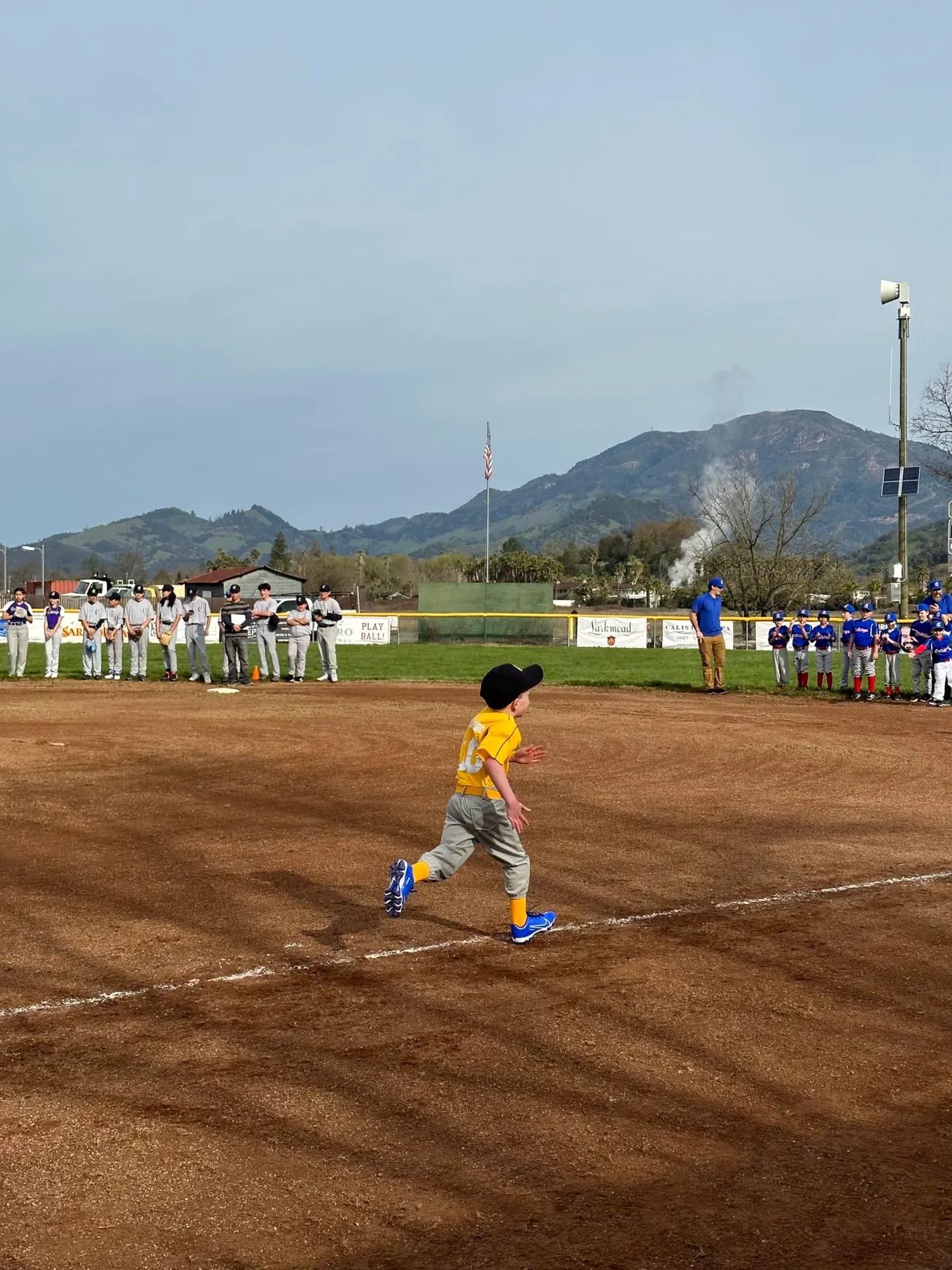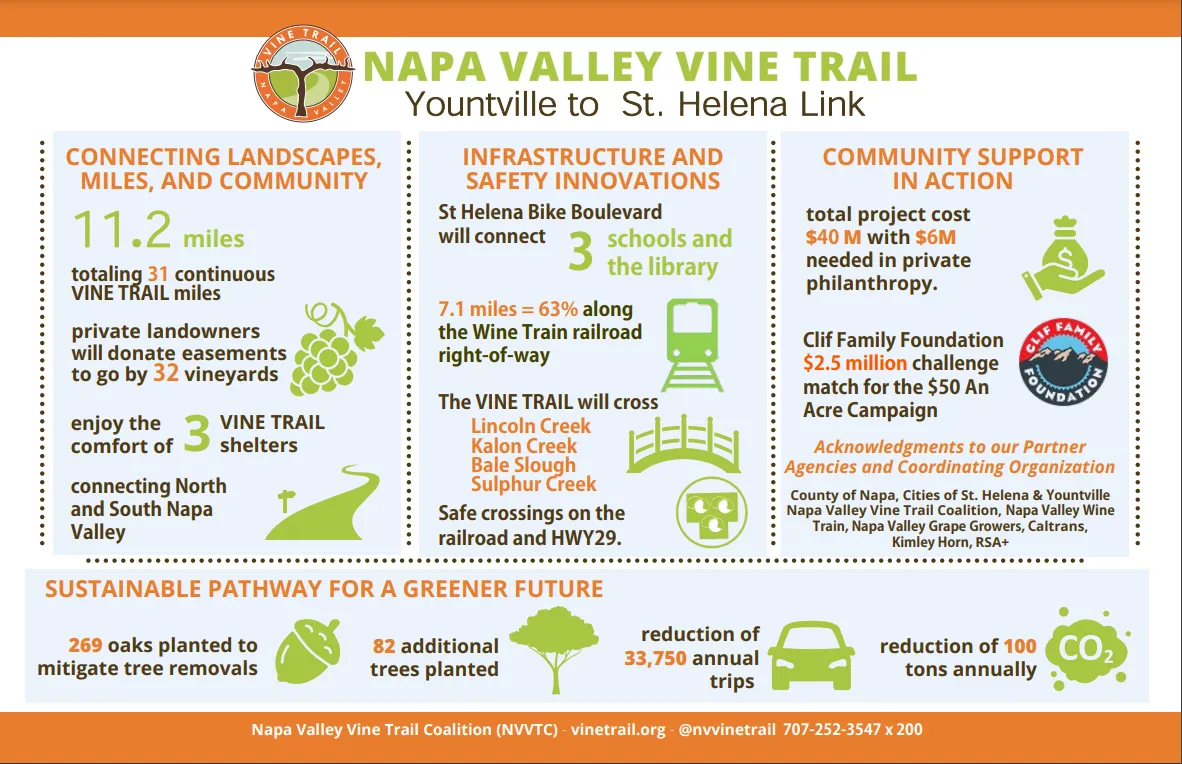With Calistoga’s purchase of the Fair- grounds property expected to be complete in July, city council conversations have shifted from concerns regarding acquisition of the land to talk about how to revitalize the 71-acre parcel.
The Fairgrounds property was one of many topics at Tuesday’s informal work- shop where council members met with city staff to identify priorities for the 2024-25 fiscal year budget.
The most pressing matters involving the Fairgrounds property, the council said, would be to fast-track repairs needed to reopen the RV park to restart that revenue stream. The council also wants to conduct a city-wide survey to gather public input on preferred uses of the property, and to create a 501(c)(3) nonprofit status for the property so it can begin accepting donations for its repairs and future uses.
“For us to make a good decision about what our priorities will be with the Fair- grounds, I think we need to find out, on a much broader basis, not just from the most vocal people, about where the Fairgrounds should go,” said council member Kevin Eisenberg at the meeting. “Obviously it’s going to be a major capital investment just to get it into a state where we can actually think about what we want to do with it, and that will take priority.”
After years of deliberation, the city and Napa County agreed this year to a purchase price of $2 million for the Fairgrounds – a fraction of the $16 million the city agreed to pay in 2020. To fund that purchase, the city floated a property tax ballot proposal, called Measure E, which would have provided $27.5 million to buy the Fairgrounds and fund its rehabilitation. Measure E overwhelmingly failed in a special election.
Under the approved purchase agreement, there are still plenty of costs that need to be funded and uses that need to be decided.In addition to the $2 million for the property, the city also plans to create a new position for a Fair- grounds Director who will oversee the initial revitalization efforts of the property, which has fallen into a state of disrepair after almost a decade of neglect and deferred maintenance.
City Manager Laura Snideman said at Tuesday’s meeting that the city anticipates the cost for that position, combined with the costs for landscaping and some minimal repairs, to be about $700,000 annually.
Mayor Donald Williams said that the estimate was higher than he expected, and said to offset those expenses, the council’s foremost priority should be to repair and reopen the RV park, which historically had been the most profitable of the Fairgrounds’ attractions.
“Until that Fairgrounds is operating, it’s just going to be drain- ing money,” Williams said. “If we can ameliorate that, we can get the positive cash flow going once that infrastructure is repaired.”
Public Works Director Derek Rayner was on hand at the meeting and said a recent visit to assess the state of the RV park infrastructure was encouraging.
“We went out and scoped the sewers and RV park a week or so ago, and it’s actually, the pipes are in a little better condition than we initially thought,” Rayner said.
He added that because the pipes haven’t been used in many years, there are other issues to consider including electrical wiring, water leaks and overgrown trees.
An initial estimate of costs to get the RV park up and running was $2.5 million but Rayner said there would need to be further investigation before he could provide the council with an accurate number.
Snideman told the council it would likely be a few months be-fore staff would have an estimated cost of repairs and maintenance to reopen the RV park.
While the council said it also wants to get the nonprofit status set up quickly, Snideman said the application process is complicated and that the timeline to apply for and receive nonprofit status can take anywhere from six to 18 months.
She also said the city staff does not have the bandwidth to take on that project currently and added that there would also be financial considerations as the process would require the use of legal consultation.
In addition to the Fairgrounds, the council also agreed that other issues of importance for the city in the upcoming fiscal year will include the creation of workforce and middle-income housing, locating funds and grants for aging city infrastructure, providing adequate office space for city staff, and prioritizing increased communication with the city’s four public advisory committees.








